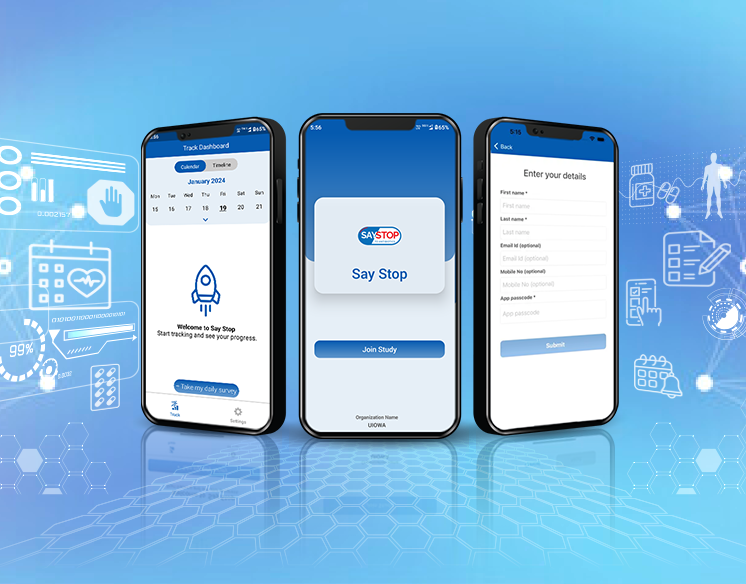With 7.5+ billion people across the globe, humans come in various hues. And while we have a lot in common, we are unique in genetics, food habits, race, ethnicity, culture and language among many others. In the field of medical science, this manifests itself in the way we respond to drugs & medications. So, it is not so uncommon to see some respond positively to a medication, some showing no effect at all and while others respond negatively. These differences are further exaggerated by socioeconomic status, living conditions, gender and age of the patient. For example, Metformin, a drug commonly prescribed to manage diabetes works wonderfully for some but causes several adverse effects in others. In another example, 10% of black men are deficient in glucose-6-phosphate dehydrogenase (G6PD), an enzyme that protects red blood cells from certain toxic chemicals. In this subgroup, these malaria treating drugs may lead to development of hemolytic anemia due to low levels of G6PD enzyme.
Need for Diversity & Inclusion in Clinical Trials
A clinical trial is a research study conducted on human volunteers to analyze the safety and efficacy of novel therapies or devices for the benefit of everyone. So it is important that the clinical trials subjects are representative of the human population including underrepresented racial and ethnic communities. However, the clinical trial participation has been plagued by imbalances due to overrepresentation of more than 90% representation from white caucasians, which leaves much to be desired on the effectiveness of new treatments across populations and genetic subgroups.
As an example, prostate cancer is more prevalent among the black population but most studies have only been conducted in white populations. A recent NCI led study showed black women had more than twice the rate of deaths from uterine cancer compared with other racial and ethnic groups, underscoring the need for representation of black women in clinical trials. Another striking example are auto-immune diseases, which are more prevalent in women even among Caucasians. But most drug trials for auto-immune disorders include the white population, often underrepresenting the prevalent group.
Comorbidities and underlying health conditions are also other important factors that affect drug response. For example, cardiac comorbidities such as coronary artery disease or arterial hypertension are clearly defined as risk factors. Additionally, age, hormonal changes, stress, BMI (body mass index) and unhealthy habits such as smoking, alcohol and substance abuse also introduces risk of disease and response to a drug. So, drug trials must, therefore, correctly assess the risk-benefit ratio of novel therapies across a wide spectrum of population. Due to lack of proportional representation of diverse groups, uniform-cohort trials fail to address these needs and hence hinder the development of optimal medical interventions. A diverse participation in clinical trials is crucial to get accurate insights into disease burden, improve prevention and make life saving treatment accessible to all.
Efforts to Enhance Diversity in Clinical Trials
During the COVID-19 pandemic, several US studies highlighted that clinical outcomes were severe among the racial and ethnic minority groups, including Blacks, Hispanics, and Asian Americans. Surveys showed that men are more likely to be affected than women and studies reported differences in disease susceptibility, hospitalization rates and mortality rates across geographies, alluding to a genetic basis of the disease burden. Hence, trials for new COVID19 drugs and vaccines must take all of these factors into consideration for unbiased results.
Attempts to include subjects from subgroups on the periphery is an arduous task. For instance, the US FDA has been pushing for diversity to increase the number of female participants in clinical trials since the 1990’s, but only recently has participation climbed up from less than 20% to 45%. Efforts to increase ethnic diversity is a much more recent phenomenon. To support this effort the FDA expanded its previous guidelines and issued a new draft guidance for developing plans to enroll more participants from underrepresented populations in clinical trials in the US. According to this new draft guidance, sponsors of medical products are recommended to develop and submit a Race and Ethnicity Diversity Plan to the agency early in clinical development.
Organizations such as American Society of Clinical Oncology (ASCO) and Association of Community Cancer Centers (ACCC) present specific recommendations and strategies for the research community, and encourage researchers to enhance minority participation in trials. Pfizer, Walgreens, Eli Lilly, Moderna, J&J and other private companies are also pushing for diversity.
A report based on research and feedback from more than 500 stakeholders across 150+ organizations, released by the Pharmaceutical Research and Manufacturers of America (PhRMA) and the Deloitte Center for Health Solutions (CHS), suggests following critical strategies to enhance diversity in clinical trials:
- Create a network of clinical trial sites in underserved communities.
- Develop a diverse pool of investigators and staff.
- Establish long-term relationships and invest in the community.
- Engage the community in conversations.
- Provide sustainable support and standardized platforms.
To implement these strategies, several ideas are being channelized, such as widespread adoption of decentralized trials. A few groups are addressing diversity via use of RWE to supplement randomized controlled trials. RWE has been widely used in post marketing surveillance. However, the pandemic has pushed us to test the feasibility of using RWE in pre-market phases to support drug development and help with regulatory decision making.
TrialX’s Diversity, Equity and Inclusion (DEI) Toolkit
To facilitate diversity, equity and inclusion in clinical trials, TrialX launched a DEI toolkit in iConnect, our award-winning patient recruitment management platform. iConnect serves as a central system for patient recruitment operations at major pharmaceutical sponsors, large academic research centers and patient advocacy groups. The toolkit will have a wide ranging impact by bringing diversity and inclusion in the front and center of patient recruitment workflows. Learn more about DEI toolkit HERE
If you would like to discuss further, reach us at info@trialx.com




